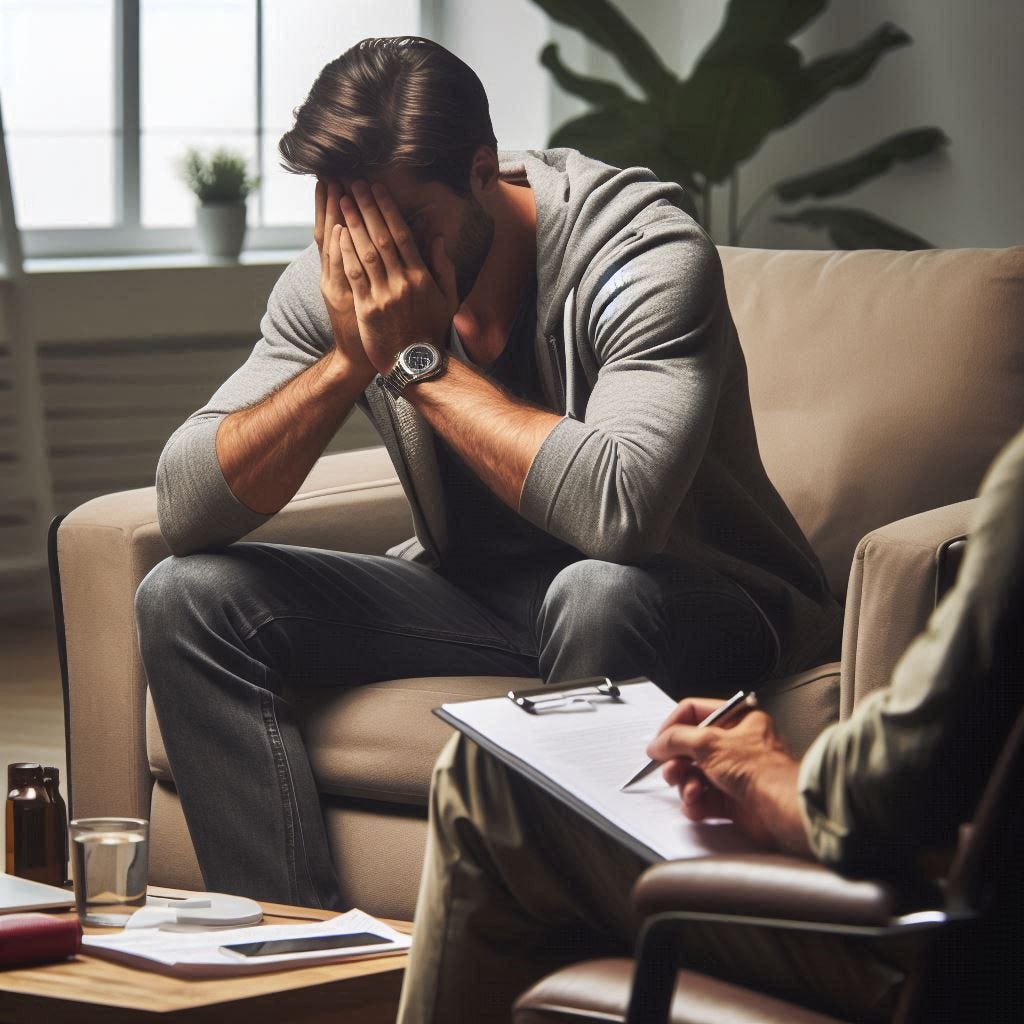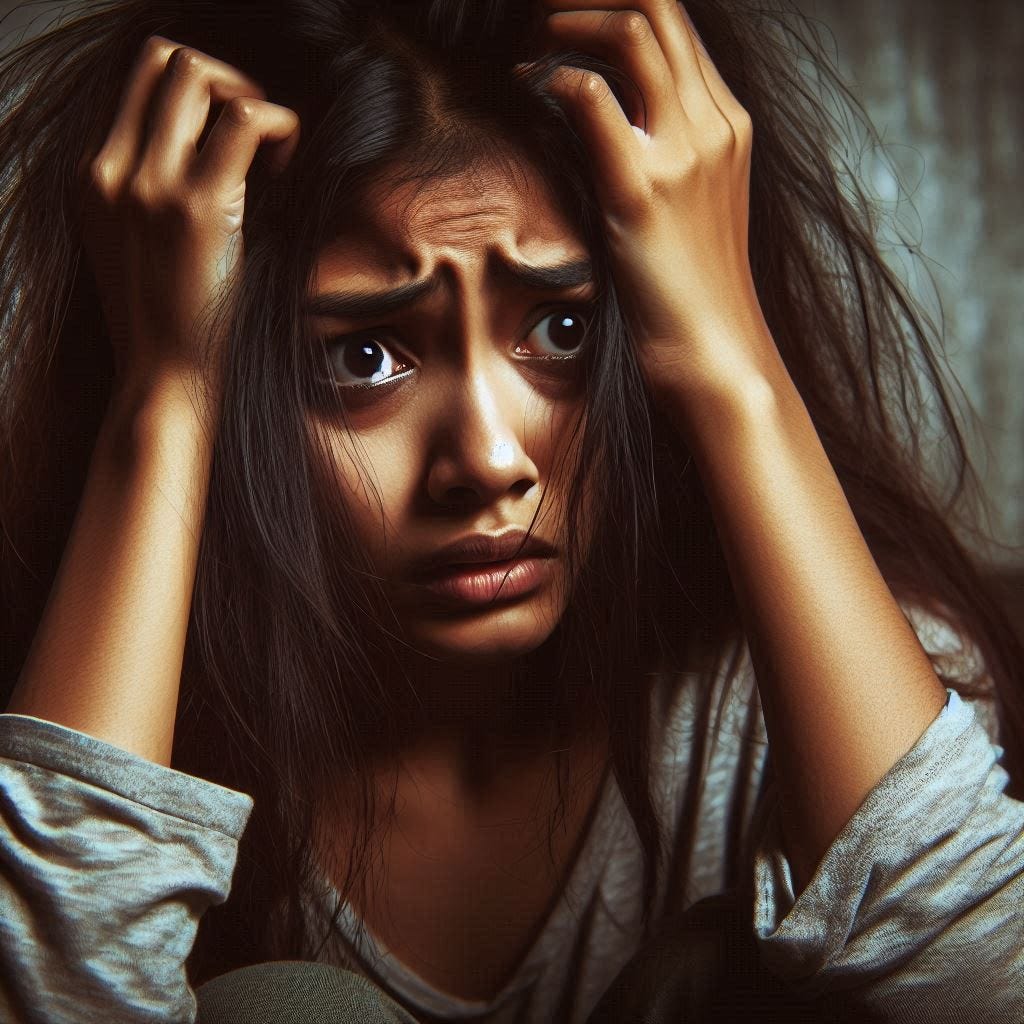Since my work transition into psychedelics I have grown more aware of the mental health crisis ravaging the United States. My personal use of psychedelics in spiritual and healing contexts increased my consciousness around the declining state of mental health. Although I haven’t suffered significant mental health setbacks, over the years I have witnessed many family members and friends tormented with various mental health disorders.
As I reflect on the deteriorating state of America’s mental health, I can’t help but think something changed in the early 2000s. Without a doubt, today’s nihilistic, doomer vibe coaxing us all to take the black pill didn’t exist decades ago. Maybe the pivotal point was 9/11, I don’t know. The mental health problems I’ve seen in my social circles have all surfaced since, in the 2010s and 2020s. Come to think of it, I recall one media artifact that signaled the arrival of this dark era of mental health.
The television show The Sopranos may have catapulted America’s mental health problem into mass awareness. The protagonist Tony Soprano had regular visits with his therapist and had a prescription for the anti-anxiety medication Xanax. Thanks to the show Xanax soon became a household name in America. After the surge in name recognition, millions of Americans soon got their own prescriptions. Twenty years ago Xanax seemed to replace a Tic Tac.
Americans Know About Our Mental Health Crisis
Compared to what’s happening in today’s world, that period seems quaint. I think many wouldn’t hesitate to go back to the simpler days of the United States having an epidemic of national anxiety. The bad news is the anxiety never went away and a ton of other mental health problems have piled on, turning our mental health problems into a full-fledged crisis. In fact, 90% of the American public think there is a mental health crisis in the United States today.
As the mental health crisis grinds away, we’re not helping ourselves. 70% of Americans believe that society views people with mental health conditions “very negatively” or “somewhat negatively.” The stigma around mental health still haunts us, which may contribute to our lack of awareness and education around mental health. I’ve learned more about mental health in the last few years, than the previous decades combined. A lot of my mental health education gets chalked up to working in psychedelics and I still think there’s a big, existing gap in education and awareness for America at large.
With this lack of awareness in mind, I want to share some startling mental health stats in the United States. These are just some of the highlights that crossed my radar doing research. Keep in mind, the following figures don’t include trauma, suicides, and deaths of despair, all of which I plan on covering in the near future.
America’s (Lack of) Mental Health in Numbers
There are countless statistics regarding mental health, and innumerable ways to highlight the problem. Here’s a random look at the reality.
In 2024, the United States ranks #13 among the most stressful countries in the world.
1 in 6 kids ages six to 17 in the U.S. experience a mental health disorder
78% of employees having a high or moderate mental health risk
More than half of U.S. adults with a mental illness (55%) are not getting treatment
More than 27 million Americans experiencing mental illness are going untreated
Surviving the United States in the 2020s
Let’s not lie to ourselves. Living in the Unites States in the 2020s is batshit crazy. We’ve survived a pandemic, and now we narrowly escaped seeing a former president get assassinated on live television. Those are just a couple of examples, among countless others. We should all be receiving campaign medals for going through this white knuckle ride. Now, our next crisis is staring down the barrel at us.
You may have noticed a pattern or theme emerging in the stats above. Jobs are impacting workers’ mental health, and workers are at high-risk, while 77% of Americans are worried about the economy. We’ve already entered our next recession or worse. We were long overdue, and this economic crash may be worse than the Great Financial Crisis of 2007-2008. Inflation is hammering down on America with no end in sight, as unemployment keeps going up. We also seem to be teetering on the edge of a housing market crash, as millions struggle to keep up with the cost of living crisis. This type of economic pain will be sure to inflict mental health struggles on unimaginable numbers of Americans.
Our latest economic fallout will pour kerosene on “deaths of despair.” Deaths of despair were already on the rise prior to covid-19. What an economic recession, crash, depression (take your pick) will do to America’s mental health might make us wish for the pandemic again. What’s looming on America’s horizon will have us all empathizing with Tony Soprano.






